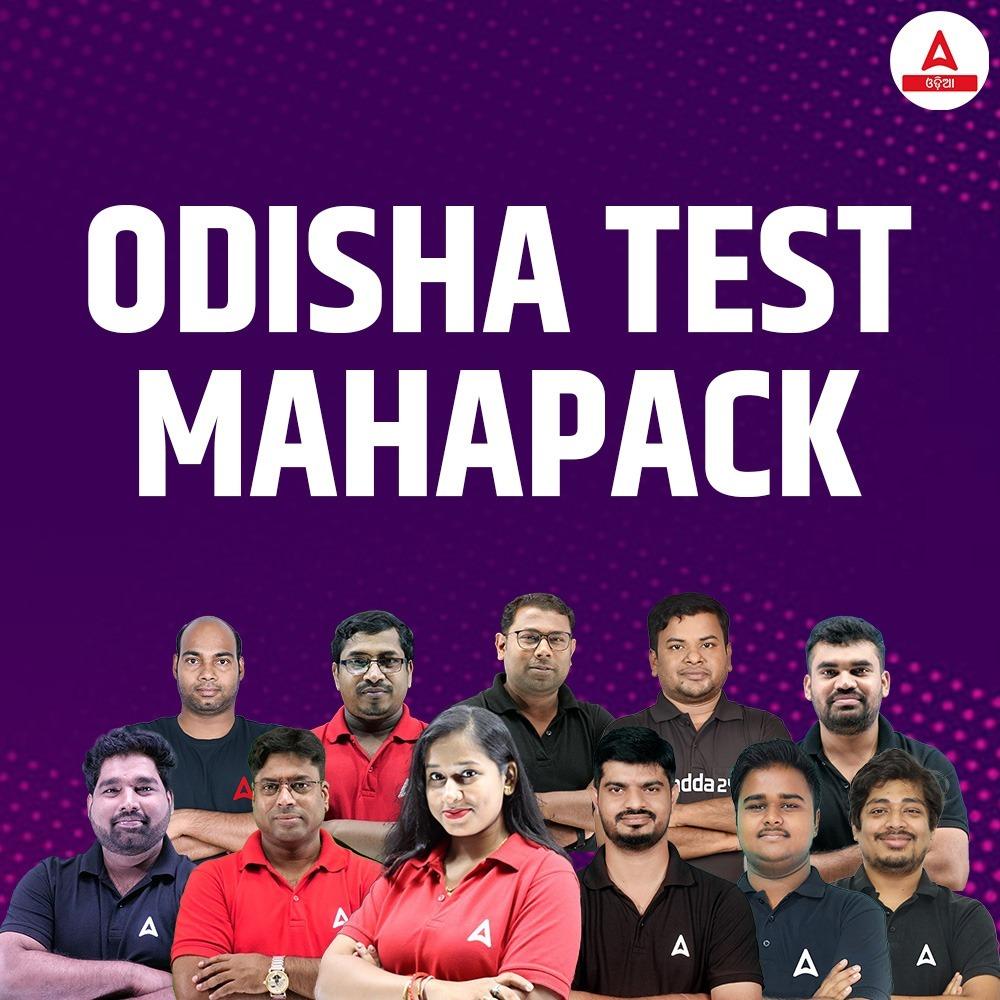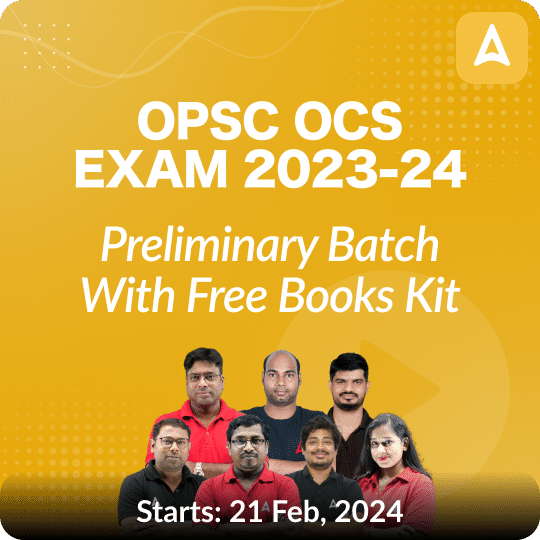Top 30 General Studies MCQS For OSSSC RI,ARI, Amin, SFS, ICDS Supervisor
Preparing for competitive exams like the OSSSC RI, ARI, Amin, SFS, and ICDS Supervisor requires a solid grasp of general studies. Here are the top 30 multiple-choice questions (MCQs) along with their answers:
- Who is known as the Father of the Indian Constitution?
a) Jawaharlal Nehru
b) Dr. B.R. Ambedkar
c) Mahatma Gandhi
d) Sardar Vallabhbhai Patel
Answer: b) Dr. B.R. Ambedkar - Which planet is known as the Red Planet?
a) Venus
b) Mars
c) Jupiter
d) Saturn
Answer: b) Mars - The headquarters of UNESCO is located in which city?
a) Paris
b) Geneva
c) New York
d) Rome
Answer: a) Paris, France - Who is the author of the book “The God of Small Things”?a) Salman Rushdie
b) Arundhati Roy
c) Jhumpa Lahiri
d) Vikram Seth
Answer: b) Arundhati Roy - What does the term “Habeas Corpus” mean?
a) To have the right to a fair trial
b) To have the body of
c) To have access to legal counsel
d) To have the right to remain silent
Answer: b) To have the body of - Which court issues the writ of Habeas Corpus?
a) District Court
b) High Court
c) Supreme Court
d) Lower Court
Answer: b) High Court - Habeas Corpus is used to enforce which fundamental right?
a) Right to Equality
b) Right to Freedom of Speech and Expression
c) Right to Liberty
d) Right to Property
Answer: c) Right to Liberty - Who can file a petition for Habeas Corpus?
a) Only the person detained
b) Any citizen
c) Only lawyers
d) Only government officials
Answer: b) Any citizen - In which article of the Indian Constitution is the provision for Habeas Corpus mentioned?
a) Article 32
b) Article 21
c) Article 14
d) Article 19
Answer: a) Article 32 - What does the court examine in a Habeas Corpus petition?
a) The legality of detention
b) The guilt or innocence of the detained person
c) The financial status of the detained person
d) The educational background of the detained person
Answer: a) The legality of detention - Which of the following is NOT one of the types of writs in India?
a) Habeas Corpus
b) Mandamus
c) Certiorari
d) Sedition
Answer: d) Sedition - Who has the power to issue a writ of Habeas Corpus?
a) Prime Minister
b) President
c) Supreme Court and High Courts
d) Governor
Answer: c) Supreme Court and High Courts - What is the purpose of a Habeas Corpus writ?
a) To punish the detainee
b) To ensure a fair trial
c) To prevent detention
d) To examine the legality of detention
Answer: d) To examine the legality of detention - Which of the following statements about Habeas Corpus is true?
a) It can only be filed in the Supreme Court
b) It can be filed against both governmental and private detention
c) It can only be filed during wartime
d) It can only be filed by lawyers
Answer: b) It can be filed against both governmental and private detention - What language is the term “Habeas Corpus” derived from?
a) Greek
b) French
c) Latin
d) Sanskrit
Answer: c) Latin - What does the term “Quo Warranto” mean among the types of writs?
a) By what warrant or authority
b) To have the body of
c) We command
d) Let it be certified
Answer: a) By what warrant or authority - In which court can a Habeas Corpus petition be filed in case of violation of fundamental rights?
a) District Court
b) Supreme Court
c) International Court of Justice
d) Subordinate Court
Answer: b) Supreme Court - What is the primary purpose of Habeas Corpus in Indian law?
a) To prevent detention
b) To ensure speedy trials
c) To examine the legality of detention
d) To punish the detainee
Answer: c) To examine the legality of detention - Which of the following rights does Habeas Corpus primarily protect?
a) Right to Education
b) Right to Liberty
c) Right to Property
d) Right to Healthcare
Answer: b) Right to Liberty - The river Brahmaputra is known as ___ in Bangladesh.
a) Jamuna
b) Ganges
c) Teesta
d) Padma
Answer: a) Jamuna - Who invented the telephone?
a) Alexander Graham Bell
b) Thomas Edison
c) Nikola Tesla
d) James Watt
Answer: a) Alexander Graham Bell - The first woman Prime Minister of India was:
a) Indira Gandhi
b) Sonia Gandhi
c) Margaret Thatcher
d) Golda Meir
Answer: a) Indira Gandhi - The first battle of Panipat was fought in the year:
a) 1526
b) 1556
c) 1658
d) 1707
Answer: a) 1526 - What is the name of the Brahmaputra River in Tibet?
a) Ganges
b) Yarlung Tsangpo
c) Indus
d) Yangtze
Answer: b) Yarlung Tsangpo - In which country is the Brahmaputra River known as the Jamuna?
a) India
b) Tibet
c) Bangladesh
d) Bhutan
Answer: c) Bangladesh - Which of the following rivers is NOT a tributary of the Brahmaputra River?
a) Dihang
b) Lohit
c) Yamuna
d) Siang
Answer: c) Yamuna - Who were the opposing forces in the First Battle of Panipat?
a) Babur and Sher Shah Suri
b) Babur and Ibrahim Lodi
c) Ibrahim Lodi and Akbar
d) Humayun and Sher Shah Suri
Answer: b) Babur and Ibrahim Lodi - What was the outcome of the First Battle of Panipat?
a) Victory for Ibrahim Lodi
b) Victory for Babur
c) Draw
d) Treaty between Babur and Ibrahim Lodi
Answer: b) Victory for Babur - Which empire began with the victory in the First Battle of Panipat?
a) Delhi Sultanate
b) Mughal Empire
c) Vijayanagara Empire
d) Maratha Empire
Answer: b) Mughal Empire - How many tributaries of the Ganga River ?
a) Four
b) Ten
c) Six
d) Seven
Answer: b) ten










